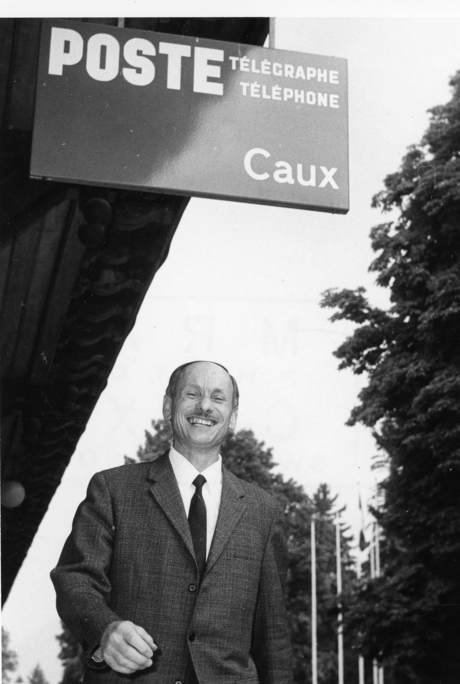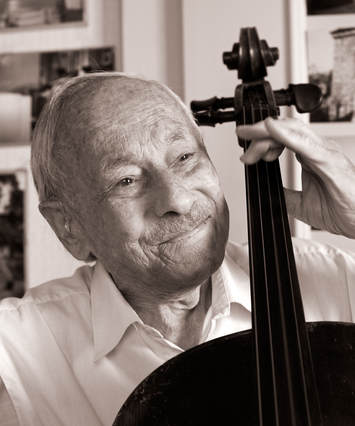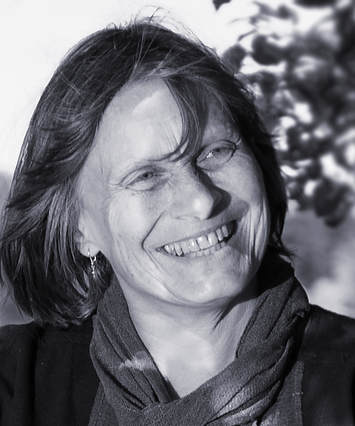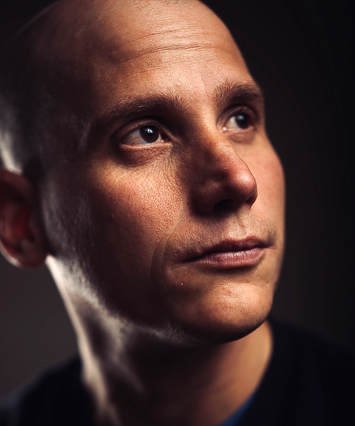Werner Haller August 20, 1915 - October 18, 2012
Large excerpts from the life story, read during the concert in his memory on 17.11.2012 at the Montreux Temple by Andreas Haller, La Tour-de Trême.
My father was the eldest of four children from a modest family in Cham in the canton of Zug; his father was a welder of condensed milk cans in the local Nestlé factory. After the School of Transport in Lucerne, my father joined the PTT, initially as a mobile agent. He worked in various post offices throughout Switzerland.
In 1938, he spent three months in Italy, sent by the PTT to learn Italian. On his return, with two of his colleagues, he made a "detour" to Libya to see the country. Finally, he applied for a job in Basel, at the district management of the Post Office. There, playing violin in a small amateur chamber orchestra, he met their pianist, the one who will become our mother. They got married on April 27, 1943.
Long before the war, Werner had met people involved in what was then called the Oxford Groups. He was convinced that their idea of transforming the world by starting with oneself made sense. Shortly after Moral Rearmament bought the Caux-Palace, the position of postal clerk in Caux was advertised. My father felt that he could be useful in this position and, against all reason, he and Mom decided to leave Basel - and this was very hard for the city girl that was my mother - and her career at the district management of the Post Office.
They came to live in Caux in 1951 with their two children: I was 6 years old and Sylvie 3. In Caux, he had three passions: his post office (which did not spare him its share of worries), his immense vegetable garden (where he could evacuate the worries of the post office) and, always, music, he on the violin and my mother on the piano. For more than 25 years, he lived for and through these three passions. Then, in retirement, he undertook many trips with Mom to Switzerland and Europe, until the day she had a stroke and gradually could not leave her bed. For 10 years, he took care of her, pampered her, did the housework and did whatever was necessary for her well-being.
Shortly after my mother's death in 1998, he set out again, still by train, to discover the depths of Switzerland, visiting his relatives and acquaintances from all over. At home, he welcomed with music whoever wanted to come for a tea or a coffee, hence his innumerable acquaintances. He continued to play the violin, but also the piano and the cello.
Whenever his health took a turn for the worse, his inexhaustible optimism allowed him to recover: he had the art of dialoguing with his body and with his illnesses, and his body obeyed him - his faith in the Great Love did the rest. My father had to be hospitalized last November after breaking his tibia and fibula. During his convalescence, alone in his room, he thought a lot and decided of his own accord, in view of his physical weakness, not to return to his apartment in Caux, which he had occupied for more than 61 years. And, lately, feeling that the Great Journey was approaching, he prepared himself for it... And when the Great Love took him in, he was ready.
Französisch




